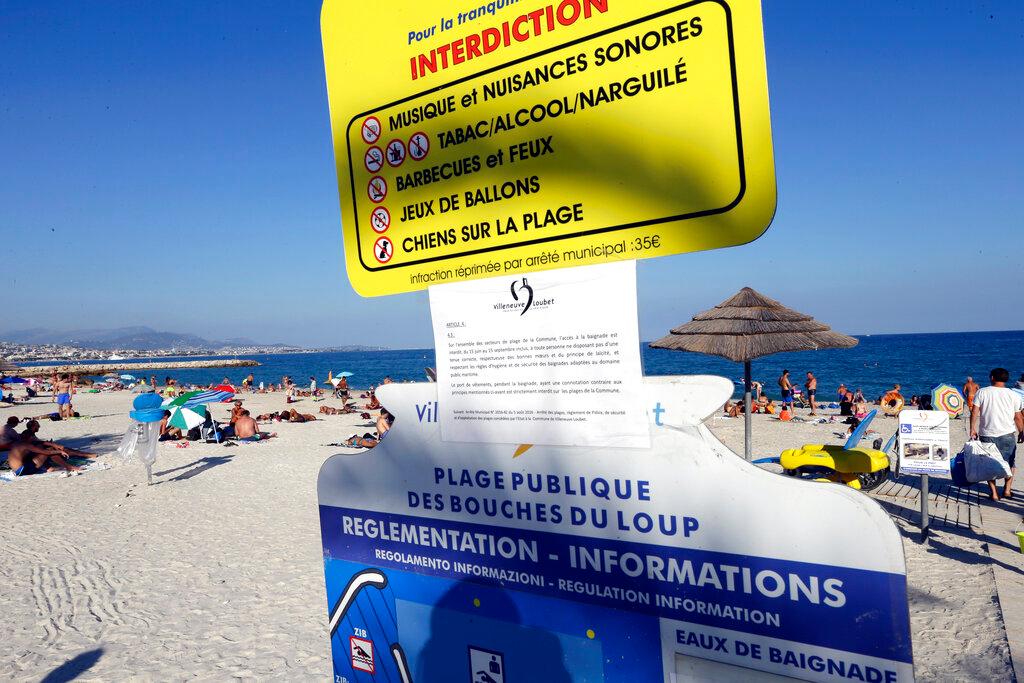Activists fined for wearing ‘burkini’ swimsuits in French public pool
Many argue that the swimwear violates French secular values but activists argue that bans are rooted in Islamophobia.
Several female activists have been fined in France for wearing what have become known as “burkinis” in a public swimming pool.
Five women entered the Grenoble city pool to swim on Wednesday, causing the pool to be evacuated at the request of officials, French police said.
Grenoble city hall said the activists had blocked access to the pool to other swimmers, and so were removed and banned from entering the facility for two months.
The incident comes after a tense debate between the Grenoble mayor, Éric Piolle, and the government over full-body swimming costumes.
“Burkinis” – a swimsuit that covers the whole body except the face – have been outlawed by several French municipalities since 2016, arguing the costumes violate the country’s secular values.
But activists have argued that the ban is rooted in Islamophobia.
The Citizen’s Alliance stated on Twitter that seven of its activists “demand the right to choose their swimming costume: full coverage, long-sleeved, short-sleeved or even topless”.
The organisation says the current regulations are “discriminatory” and vowed to keep fighting for access to the swimming pool.
Annabelle Bretton, deputy mayor of Grenoble, said the protest and removal of activists by authorities had been done “calmly” and “without violence”.
The demonstrators were later met at Grenoble city hall after they had been handed a fine by police.
In June 2019, a dozen women supported by the Citizens’ Alliance carried out a similar action in the same pool in Grenoble in an “act of civil disobedience”.
Last year, the city’s mayor, in a letter to French Prime Minister Jean Castex, asked the government to decide at the national level whether or not to ban burkinis.
Muslim swimwear has proved to be controversial not just over matters of modesty but over forming a potential health and safety hazard to wearers and other swimmers, says Global Sport Matters.
Traditional Islamic attire requires men to cover from their belly button to their knees and women to cover everything except their hands and faces.
Because these attire guidelines include swimwear, many Muslim women don burkinis when swimming.
A burkini meets modesty requirements, although some Muslim authorities disagree, while being made of a light material that is suitable for swimming.
However, Muslim women wearing the burkini have been harassed and kicked off beaches in Europe and the US.
The harassment, or the fear of it, keeps many Muslim women away from public pools and beaches and denies them the health benefits of swimming.
The harassment and fear is not limited to Muslim women in any one country. Several places have banned the burkini at public swimming areas.
A few years ago, numerous French towns banned the swimwear in light of IS terror attacks in France.
Subscribe to our newsletter
To be updated with all the latest news and analyses daily.
